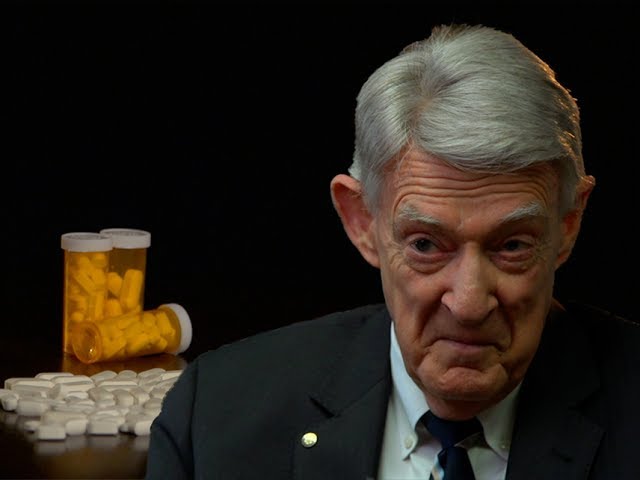"I take the Hippocratic oath seriously that my job is to relieve pain and suffering," says Dr. Forest Tennant, a California pain specialist who patients from across the nation are flocking to see.
Tennant takes the patients turned away by doctors afraid to prescribe painkillers amidst the government's war on opioids.
Subscribe to our YouTube channel: http://youtube.com/reasontv
Like us on Facebook: https://www.facebook.com/Reason.Magaz…
Follow us on Twitter: https://twitter.com/reason
Subscribe to our podcast at iTunes: https://goo.gl/az3a7a
Reason is the planet's leading source of news, politics, and culture from a libertarian perspective. Go to reason.com for a point of view you won't get from legacy media and old left-right opinion magazines.
—
Pain patients from across the country who say they can't get the treatment and medication they need in their home states are flocking to a boundary-pushing pain specialist based in West Covina, California.
The problems these patients face stem from the opioid addiction and overdose crisis, which results in as many as 91 deaths a day in America, according to the Centers for Disease Control and Prevention (CDC). The media and government have dubbed this problem the "opioid epidemic," and law enforcement agencies have reacted accordingly. Physicians are routinely arrested for overprescribing and running so-called "pill mills," and some states have filed lawsuits against pharmaceutical manufacturers. In 2016, the DEA clamped down on painkillers, reducing the allowed production of opioid medications by 25 percent or more. This year, the CDC issued guidelines advising avoid prescribing high doses over 90 morphine milligram equivalents.
Many physicians have even begun to adjust the way that they think about pain.
In a New England Journal of Medicine article, one of the pain specialists advising the CDC recommended that pain patients "use coping and acceptance strategies that primarily reduce the suffering associated with pain and only secondarily reduce pain intensity." That opioids are never an effective chronic pain treatment is quickly becoming conventional wisdom, and the American Medical Association has even begun to advise physicians to abandon the pain rating scale when assessing patients.
"I take the Hippocratic oath seriously, that my job is to relieve pain and suffering," says Dr. Forest Tennant. "So when I see the AMA decide that they're not going to assess pain, I'm not with them."
Produced by Zach Weissmueller. Music by Kai Engel (http://freemusicarchive.org/music/kai_engel/) and Blue Dot Sessions (http://freemusicarchive.org/music/Blue_Dot_Sessions/).

